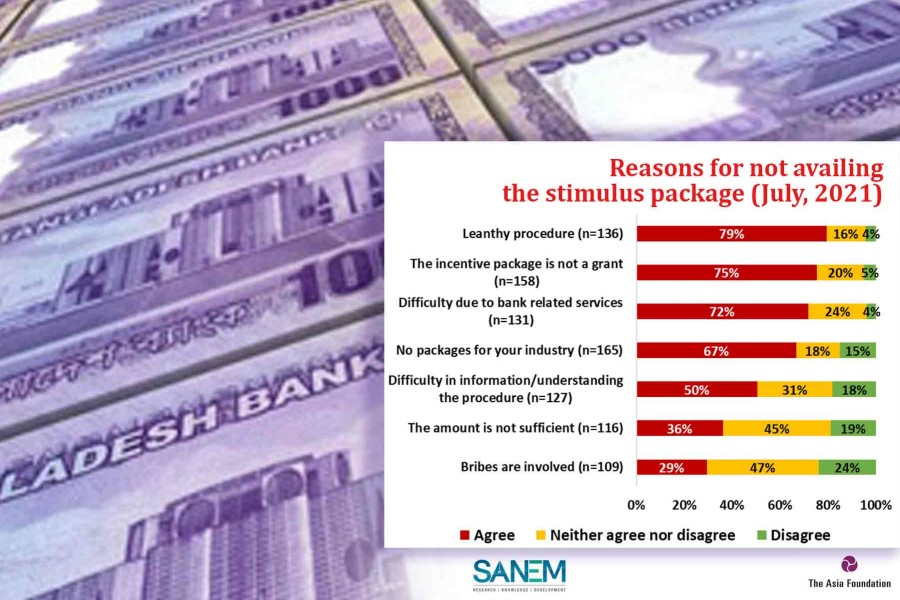The South Asian Network on Economic Modelling (SANEM) has said in a survey that twenty-nine per cent of businesses were asked to pay bribes in order to receive the assistance the government provided to overcome the challenges of the COVID-19 pandemic.
SANEM provided the information in the fifth edition of the ‘COVID-19 and Business Confidence in Bangladesh’ quarterly survey on the effects of the pandemic on business, reports bdnews24.com.
SANEM Executive Director Dr Selim Raihan announced the findings of the report through a virtual event on Saturday. The event was organised with support from The Asia Foundation.
Raihan did not provide additional details regarding which banks or other parties had demanded the bribes in exchange for the assistance.
In response to a question, Raihan said the survey had only asked a yes or no question on whether bribes had been paid, but did not ask for details.
The fifth edition of the survey collected findings from 501 small, medium and large companies in the manufacturing and service sectors from 37 districts in eight divisions across the country, he said.
“Of the businesses covered in the survey, 29 per cent reported they had been asked for bribes. Another 47 per cent did not say yes or no. This silence suggests a large section of this 47 per cent was likely also asked for bribes”
These participants likely did not answer yes or no due to worries or fears about getting into trouble, he said.
Twenty-four per cent of participants in the survey stated they had not paid any bribes.
Most of those who reported having to pay bribes were from small to medium-sized businesses, said Raihan, a professor of economics at Dhaka University.
Of the 501 participants in the survey, 42 per cent were medium-sized businesses, while 35 per cent were small-scale entrepreneurs, he said.
Of the participants, only 21 per cent had received the incentive loan assistance as of July, while 79 per cent had not.
Another finding of the survey was that 64 per cent of industrial businesses described the state of business, commerce investment and economic recovery in Bangladesh amidst the pandemic as vulnerable.
The SANEM report states that until April, according to six indicators including factory production, production costs, employment and sales, business had improved since the past year, but 42 per cent of companies had said they were still not doing well. The impact was hardest on small and medium industries.
The country was under continuous or intermittent lockdown at the time of the survey, Raihan said. Though the government has since lifted the lockdown in consideration of peoples’ livelihoods, business leaders are still not particularly confident about the future, he said.
According to the survey, at least 60 per cent of workers at these businesses had received the vaccine.
Raihan called on all private and public institutions to work together to speed the country’s economic recovery.
Kazi Faisal Bin Seraj, the Bangladesh representative for The Asia Foundation, gave the opening remarks at the event.


